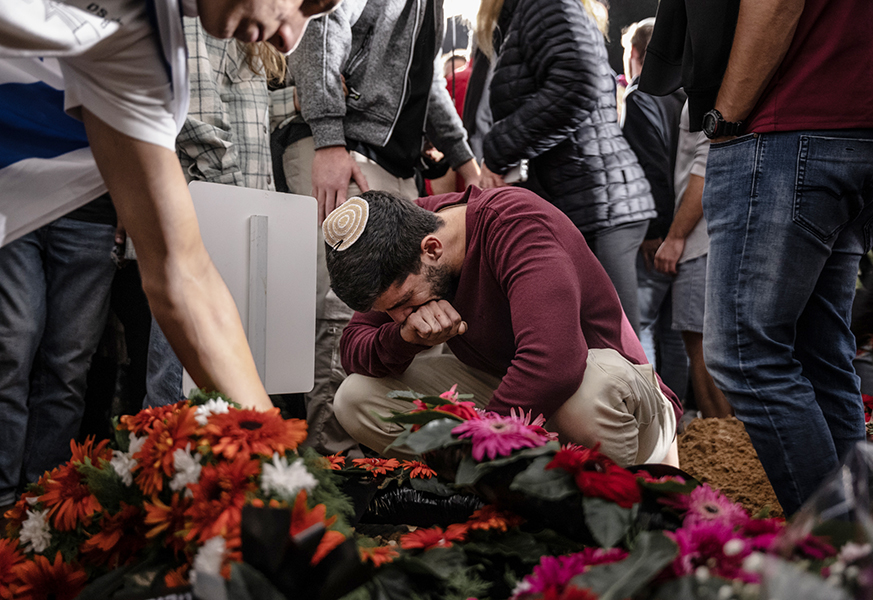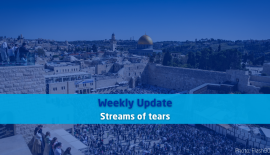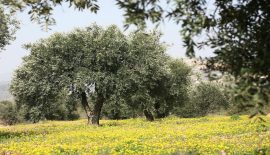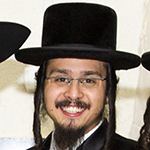Closed curtains
Someone sent me pictures of Hamas flags at a demonstration in the Netherlands. Every time I see images of demonstrations where people wave flags of Hamas, ISIS, Taliban or other Jihadist groups, calling for the murder of my people, I can’t do anything but shake my head in disbelief. Even though we have warned about this for years, no one ever wanted to believe us.
Even during my years in high school in the Netherlands, this hatred was always present. But no one outside the Jewish community ever took me seriously. However, just one brief look at the behavioral differences during a pro-Israel demonstration versus a pro-Palestinian demonstration should already give an objective observer an idea of which side wants to live in peace; and which side not only calls for celebrates the worst atrocities imaginable, but also celebrate these. Who in their right mind could be happy about a massacre? Which peace activists celebrate mass ‘violations’ of women, girls, babies and men, the elderly, the young, Jews and non-Jews? These could be your own daughters. Your sisters, brothers, children, grandchildren, parents or grandparents.
“Who in their right mind could be happy about a massacre?”
A time of pain, suffering and danger
Unfortunately, we live in dangerous days for Israel and Jews worldwide. Jewish scholars call times like these ‘Eat tsara leJa’akov’, a time of pain, suffering and particular danger for ‘Jacob’ – the Jewish people. This is based on the words of the prophet Jeremiah (30:7): “It will be a time of trouble for Jacob”. But let this be a warning to everyone in the West: ‘This will be a time of trouble for you too if the West continues with their ostrich politics. This will be your children, siblings, parents, and grandparents if nothing is done, and the world continues to support Hamas supporters. But frankly, I am under no illusion that my words will be taken seriously by anyone who does not already agree with me.
In an eet tsara like this, our scholars tell us to increase our prayers and increase our devotion to Torah. And realistically, at this point, that is indeed the only thing we can do. After all, the world will not listen to us anyway.
Planes?
Last week, another Hamas rocket fell here in Jerusalem. My wife was resting, and my children were playing in my son’s bedroom while I was studying in the living room when we suddenly heard a strange sound. It was a loud whooshing sound coming from the sky. Unfortunately, my children are used to jet fighters or military helicopters flying overhead by now, and my son absolutely loves to see them. So, when he heard the whooshing sound, he immediately jumped up excitedly and was about to run to the window. Judging from the sound, however, I immediately realized this was not the Israeli Air Force. I quickly rushed the children to our bedroom, which was built like a bomb shelter. By now, my wife was already sitting upright in her bed, a little confused. “These aren’t planes?”, she asked half-explaining. To my dismay, I saw a Hamas missile flying very low and no air alert to warn us.
The missile fell somewhere in East Jerusalem. After asking around, it was confirmed that, thank G-d, there was no malfunction in the air raid alarm system. The army had already calculated the approximate area in which the rocket would fall, and that’s the area where the alarm sounded. But for us – living in the area on the way to the rocket’s final destination – it was still quite a shock.
Difficult news
Since 7 October, our neighbor’s parents have gone missing. This neighbor is a friend of my wife and her husband and I learn together in the same Kollel (learning house for married men). As a result, we also met our neighbor’s parents a number of times during family celebrations. Very sweet people with a love for their grandchildren like no other. Unfortunately, Hamas did not allow these dear grandparents to see their grandchildren grow up. In fact, on 7 October, they were horribly murdered along with their friends and neighbors – children, babies, mothers and fathers – in ways I don’t even want to describe.
It took the authorities ten days to identify their remains. Just hours before Shabbat, we were all informed of the final fate of our neighbors’ parents, an elderly couple whose only crime was being Jewish and living within the internationally recognized 1967 borders.
“We often hear that Israel must ‘return to the 1967 borders’”
Pure antisemitism
We often hear that Israel must ‘return to the 1967 borders’. This has nothing to do with any kind of internationally recognized borders, neither with the rights of Palestinians. It is pure Jew-hatred that drives Hamas and all its supporters – whether in Gaza, Europe, America or anywhere else in the world. A few days ago, a London police report stated that the number of antisemitic hate crimes in London has increased by 1,353% (!) since 7 October, the day of the Hamas pogrom. This shows us once again that the only thing Hamas (and all their sympathizers) care about is their own hatred.
Though war break out against me
About two months ago – at the beginning of the Jewish month of Eloel – I was invited to speak for Isreality, the youth wing of Christians for Israel. I talked, among other things, about a custom we have of saying an extra Psalm every day after our daily prayers. In this Psalm we say: “Though war break out against me, even then will I be confident” (Psalm 27:3). “That doesn’t sound logical,” I told the youngster. Rabbi Meir Shapiro (1887-1933) explained that if my path in life were worth nothing, then neither would I encounter constant resistance from my enemy who is rising up against me in war.
The fact that a ‘war’ comes my way at every turn is a sign that my actions, my life’s purpose and ambitions, are very valuable. So valuable that a total war breaks out against me to keep me from realizing my dreams. We also find ourselves in a war today, a war that broke out against us. Not because we are worth nothing, but because we are valuable. Because we stand for what is good and true.
Closed curtains
As a five-year-old child, Rabbi Yitzchak Aryeh Sekel (1768-1847), better known as the Baal Shem of Michelstadt, was already known as a child prodigy because of his wisdom. The fame of this prodigy eventually reached even the king (or count) of Michelstadt, who now wanted to see for himself whether the rumors were really true. He summoned the child to his castle on a certain day and time. The king ordered that everyone should hide when this prodigy would come. After all, the castle had many rooms, and with no one to show the way, he wanted to see if the child would find his way to him.
When the day dawned, the king looked out his window and saw young Yitzchak Aryeh walking into the courtyard. A short time later, the king was surprised by knocks on his door. The king was dumbfounded. “How did you know I was here?”, he asked the child. “Before I went inside, I took some time to look at the castle from the outside,” he told the king. “I saw that the curtains of all rooms were open to let the sunlight in. Only one room had closed curtains, and I understood that had to be the room where the king was watching me from behind the curtains.”
“Hardship is often followed by redemption and goodness”
Redemption and goodness
Years later, Rabbi Sekel repeated and explained the story. “When a person is going through difficult times, and he feels that the curtains of heaven are closed, it’s just a sign that G-d is present, watching him from behind the curtain, from His hiding place.”
Just as dawn comes after night, hardship is often followed by redemption and goodness. Jeremiah 30:7 says: “It will be a time of trouble for Jacob, but he will be saved out of it.” And as Rabbi Yona ben Abraham (1200-1263) writes: “The darkness is the origin of the light that will come.” May we all see this light soon in our days.






